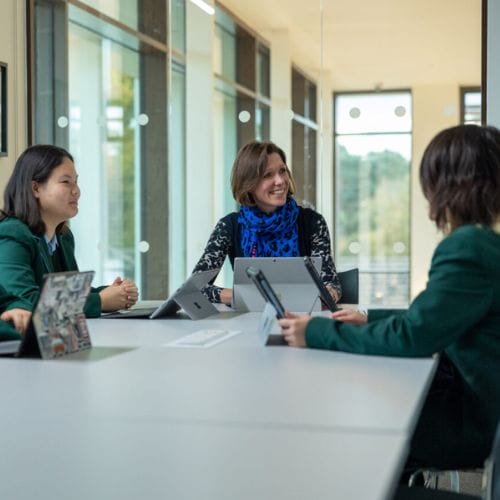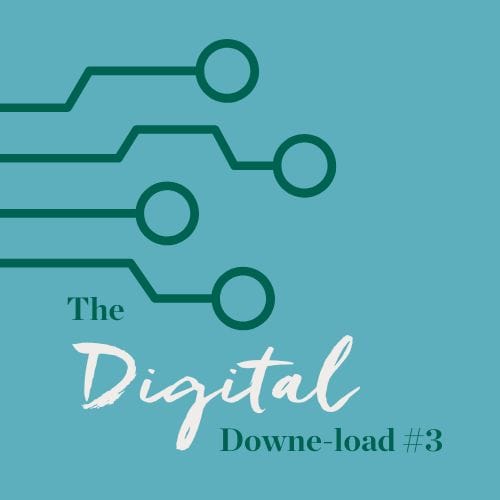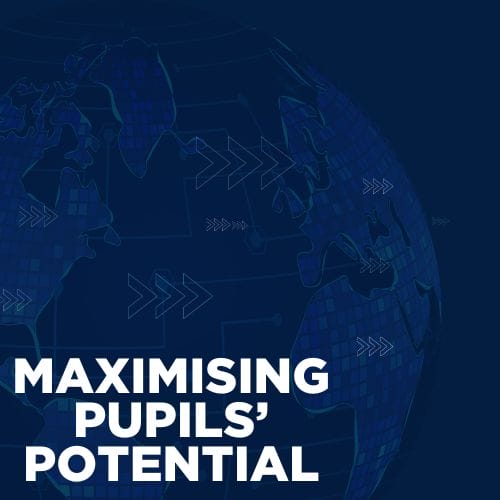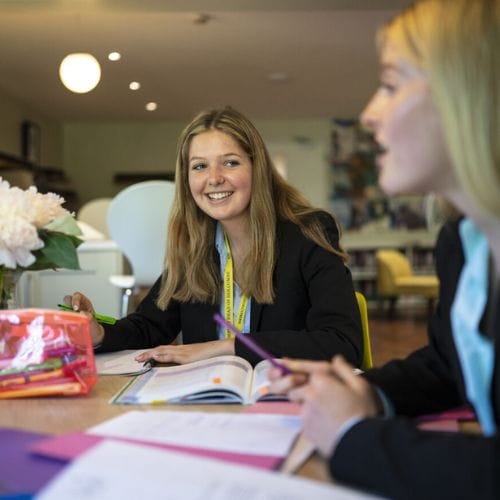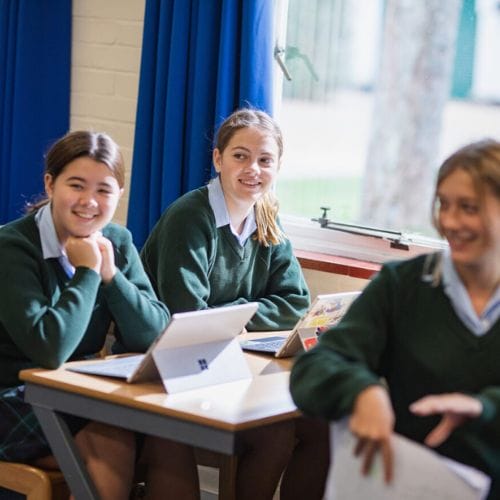
At Downe House, our Academic Staff have a keen focus on educational research and sharing their findings with colleagues. Our Excellence in Teaching programme offers a termly focus for our teachers to investigate. The theme of metacognition was chosen by our Director of Learning and Research, Dr Atherton.
Excellence in Teaching
Dr Andrew Atherton
Director of Learning and Research, Teacher of English
Investing in teacher training means investing in better pupil outcomes. This is something we take very seriously at Downe House, and for good reason. Effective teacher training is often cited as one of the most effective levers for improved pupil progress. Educational researchers, Rob Coe and CJ Rauch explain, CPD is ‘arguably the single most important thing that teachers and school leaders can focus on to make a difference in children’s learning’.
Part of Downe House’s suite of opportunities for helping teachers to improve so pupils learn better – and there are many – is our flagship CPD cycle, Excellence in Teaching. The idea is a simple one, but incredibly powerful. Every term colleagues deliberately focus on a different pedagogic strand related to Teaching and Learning, with previous topics including student motivation, collaboration, and scaffolding. Each cycle is divided into three related phases:
- Introducing the Strand: Colleagues are introduced to the termly strand by someone from within the Common Room who has a particular interest or expertise in it. Learning from each other, colleagues better appreciate the pedagogic principles underpinning the given focus.
- Departmental Discussion: Over several weeks, colleagues adapt and experiment, trying out new ideas in their classrooms related to the termly strand. They come together within their Departments to discuss what the topic looks like within the context of their specific disciplines and what it might look like in their teaching.
- Sharing Best Practice: Finally, having tried new approaches, colleagues come back together to evaluate and share what has and hasn’t worked.
Excellence in Teaching gives colleagues the golden opportunity to focus on a specific area of their practice over a sustained period of time, trying new things and learning from one another. It leverages our collective expertise whilst allowing space to really reflect and evaluate what works in our classrooms.
What is Metacognition?
Often defined – perhaps too simplistically – as ‘thinking about thinking’, metacognition describes the various cognitive and emotional processes that take place within a student before, during and after they complete a given task. It is about self-knowledge and how students can use this to perform even better on whatever it is they’re doing. As Jenny Webb describes, ‘a metacognitive learner is one who has knowledge and control over cognitive skills and processes’.
The EEF (one of the most trusted and significant research bodies for education) further defines metacognition into three areas:
- Knowledge: the knowledge students have about the task at hand and what it is they need to do.
- Regulation: the insight students have during the task itself in terms of how well they are doing and whether they ought to change their strategy.
- Motivation: the motivation students have to continue with the task, even when it gets difficult.
In this first session of our Excellence in Teaching cycle, colleagues – led by Dr Atherton – discussed this definition of metacognition and, crucially, shared practical strategies for how to help students become a more metacognitive learner.
Departmental Discussion
Following a period of putting the principles into practice, we asked teachers what metacognition looks like in their classroom.
Mrs Katharine Henson
Director of Curriculum, Teacher of Mathematics
What does metacognition look like in the Maths classroom?
- It’s OK to get things wrong. Encourage students to learn from their mistakes, ask why it went wrong, how might they adapt their strategies?
- Learning through patterns; be prepared to try things out and look for similarities that aid understanding.
- Break problems down into smaller parts; identify the information in the problem and start with the simple steps, the next steps will become more apparent as you gather information.
In summary, encourage confidence and independence with a ‘have a go’ attitude.
Miss Isla Mclachlan
Teacher of English, Key Stage 4 Coordinator
Perhaps for English the most common integration of metacognition in the classroom takes the form of modelling. This is more than simply writing an essay while students watch: it includes taking note of the thought processes going through the teacher’s mind either orally or in a separate location on the page. This embeds students centrally in the process, rather than allowing them to take the role of passive observers.
In order to succeed in English, it is also essential that a student is self-reflective and able to apply their targets in a way that addresses the mark scheme’s stipulations for improvement. The department has designed various reflective tasks which invite the students to identify where their targets are applicable to their own work and rewrite this section accordingly.
On a more creative level, GCSE students are offered the opportunity to attempt creative writing individually before offering and adapting their ideas in a whole-class setting to produce a model essay which everyone has contributed to. In summary, metacognition pervades each English lesson at Downe House, be this in Literature or Language, analysing a writer’s methods or using methods of one’s own creatively.
Sharing Best Practice
In the final staff meeting on the topic, colleagues feedback on their approaches and evaluate what has worked for them.
Mr Joshua Kersley
Teacher of Biology
In Science, I have recognized that cognitive ability of the students is rarely the factor that causes them to lose marks in exams, instead it is often the inability to recognise how to approach any given task. Metacognition allows students to understand how they learn best; it creates opportunities for the students to reflect on tasks and create strategies in the future. Within Science, there are clearly many skills and strategies students need to learn. Below is the simplified system I have implemented to hopefully increase the efficiency of the skills chosen for each task:
- Plan: I ensure that students have time before a difficult task to decide on how to tackle it, leading with questions such as ‘have you seen something like this before?’ or ‘what resources will you need to complete it?’
- Monitor: I will stop the task mid-way and encourage the students to monitor their progress, getting the students to answer questions such as ‘are your strategies useful?’ or ‘do you need to change anything?’
- Evaluation: After completing the task I am promoting a culture where we have not fully finished until we have reflected on our progress, to do this I encourage discussions such as ‘would you use any different strategies next time?’ or ‘what can we learn from our mistakes during the task?’
The above strategies do not remain hidden, I have open discussion with students about why I am getting them to do it. Motivation plays a key role in learning and without understanding why they are doing a task it is hard to efficiently motivate students. One area where metacognition truly shines is longer tasks that require largely independent work, such as experiments. Getting the students to plan, monitor and evaluate an experiment has always been common practice but I am now starting to understand how effective it truly is.
Below, you can find more blogs from expert voices at Downe House.



